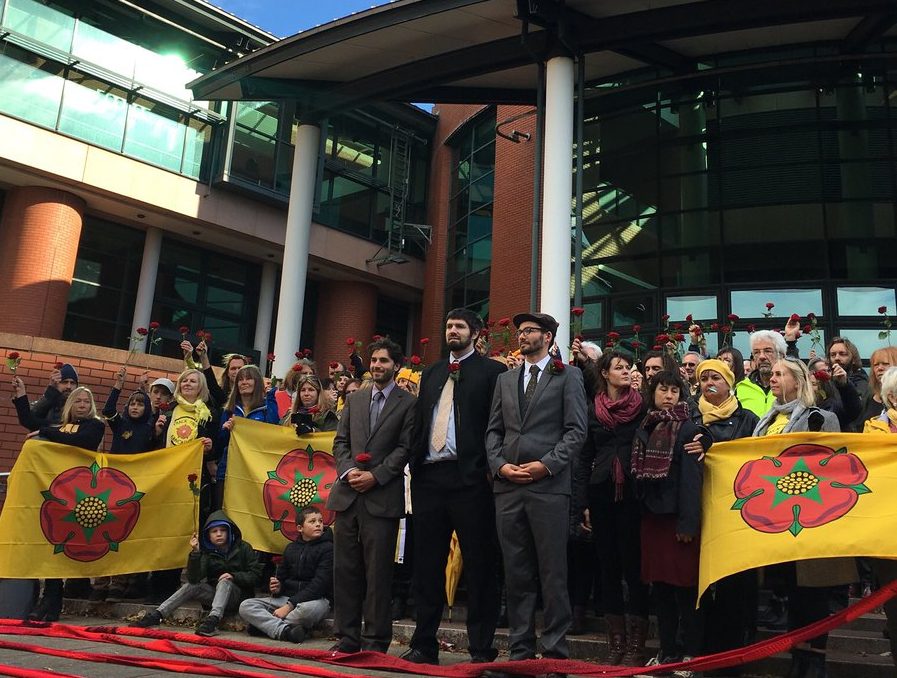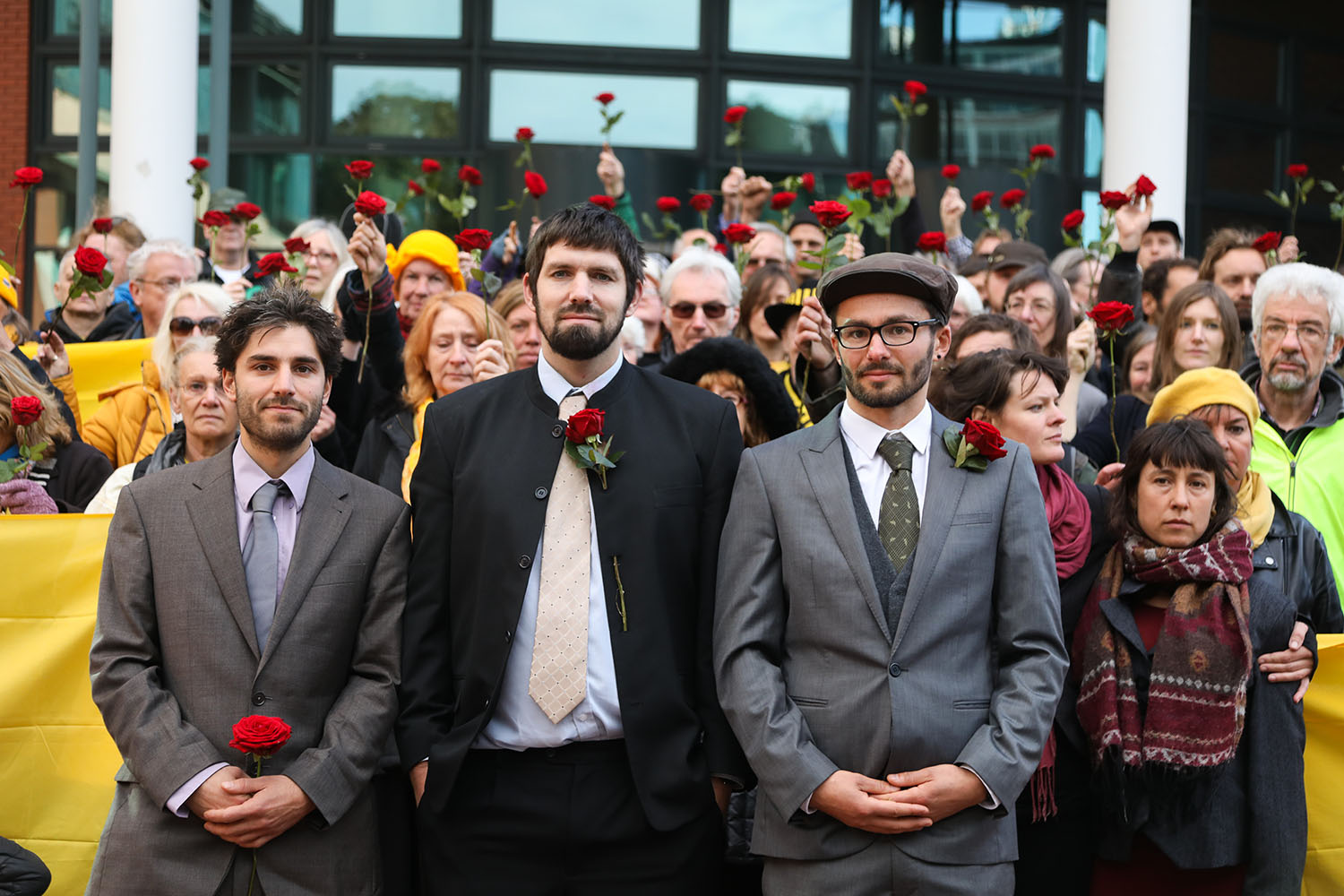Three men who took part in an anti-fracking protest have been handed prison sentences. It’s believed to be the first time environmental activists have been jailed since 1932.
On Wednesday 26 September, Simon Roscoe Blevins and Richard Roberts were sentenced to 16 months in prison, and Richard Loizou to 15 months. The men had been convicted of causing a public nuisance by a jury at Preston crown court in August.
A fourth defendant, Julian Brock, 47, was given a 12-month suspended sentence after pleading guilty to the same offence.
The men took part in direct action in July 2017, by blocking lorries carrying drilling equipment and preventing them from accessing the Preston New Road fracking site in Lancashire.
They climbed aboard the cabins of the lorries and camped there for periods ranging from 45 to 84 hours.
Is the Right to Protest Under Threat?
 Credit: Frack Free Protest
Credit: Frack Free Protest
A barrister for one of the defendants highlighted that, “there has been no environmental protester sentenced to jail since 1932.”
In 1932, protesters were jailed for mass trespass in the Peak District – an event that was central to the creation of the first national park in 1951.
Campaigners and activists are hugely concerned that the right to protest, a cornerstone of democracy, is being threatened.
Caroline Lucas MP described the sentencing as a “clamp-down on protest rights.”
86 years since peaceful protesters in UK jailed, for Kinder Trespass. History celebrates their bravery & change they created. I've no doubt will be same with #frackfreefour. #fracking @frackfreesyorks @FrackFreeMisson @ProtectorTinker https://t.co/9oFsMRlV9D
— Natalie Bennett (@natalieben) September 26, 2018
Keith Taylor MEP described the sentences as ‘‘chilling’.
Writing in the Guardian, Lucas noted: “Where I was charged with obstruction in Balcombe, these men are now serving time under the complicated and archaic charge of public nuisance. And their incarceration is part of a wider clampdown on protest.”
Lucas also highlighted how protesters who peacefully stopped a deportation flight are going to court next week, charged with terrorism offences.
The Rights to Free Association and Freedom of Expression
Now that their sentencing is over the #FrackFreeFour can finally speak out about why they took a peaceful stand against #fracking last year – something they weren't allowed to do in court before being sent to prison. #BanFracking #Democracy #WeSaidNo (Pt. 1 of 2) pic.twitter.com/aoPZsuV2x4
— Frack Off London (@FrackOffLondon) September 26, 2018
In terms of human rights, the right to protest falls under Article 11 of the Human Rights Convention, the right to free association – which protects the right to freedom of assembly as well as association.
However, Article 11 is a ‘qualified right’, which means the right to free assembly and association can lawfully be interfered with in the interests of public safety, the prevention of disorder or crime, or the protection of other people’s rights and freedoms.
The Human Rights Act 1998 marked the first time in English law that the right to protest was explicitly protected.
Article 10 of the Human Rights Convention protects the right to free expression, which means we can have our own opinions and share them with others, including publicly and as part of a group.
It states: “Everyone has the right to freedom of expression. This right shall include freedom to hold opinions, and to receive and impart information without interference by public authority and regardless of frontier.”
It applies even if our views might upset or offend people. However, like Article 11, this is a qualified right and so can be restricted in certain circumstances.







